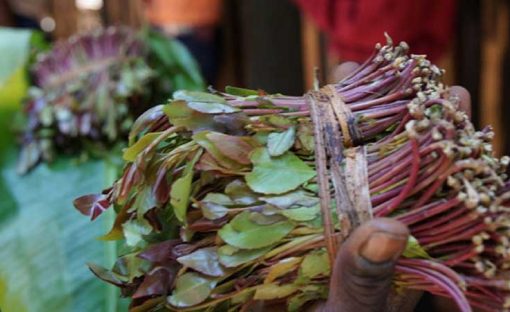A Machakos High Court has referred a case filed by a senior medic seeking for the legalization of female genital mutilation (FGM) to the Chief Justice’s office.
Justice David Kemei, who was hearing a petition filed by Dr. Tatu Kamau, has made the key ruling after some parties in the case voiced the need to have an expanded jurisdiction in the highly controversial case.
This means parties enjoined in the suit will have to wait for Justice David Maraga to constitute an uneven judge bench to hear the matter that has roped in nine NGOs and two others as interested parties and amicus curiae respectively.
In passing his judgment, Kemei noted the issues raised by both Dr. Kamau and the respondents as weighty as they touch the very heart of constitution.
Invoking section 165 (4) of the constitution, the judge said there was need to have the matter referred to the Chief Justice’s office for a way forward.
“Looking at the questions framed by the petitioner in the petition to be interpreted by this court as well as the relief sought, it emerges there are important constitutional issues impacting on the rights of the parties in this case under article 19, 27, 32 and 44 of the constitutional vis a vis section 5, 19 and 20 of the Female Genital Mutilation Act, ’read part of his ruling.
He said he was satisfied the issues raised in the matter qualified the case to be referred to the Chief Justice for the formation of a bench to hear and determine the issues therein.
On February this year, Kemei had intimated on the possibility of seeking an advisory opinion from the Chief Justice on the way forward in regard to the case whose hearing is yet to kick off.
“This is a case which raises fundamental constitutional issues for determination, and has subsequently generated immense public interest and so I will seek to refer it to the CJ in order to have an even bench to hear and determine the matter,” said Kemei during the February ruling.
Dr. Kamau, who has served at various top level positions in the health ministry including the Unit of Vaccines and Immunization Services and the Division of Vaccines and Immunization, among others, claims the establishment and existence of the Anti-FGM board contravenes the right to participates in the cultural life of person’s choice.
She similarly argues that the Prohibition of Female Genital Mutilation Act 2011, that outlaws female circumcision infringes on the right of women to perform their respective cultural based roles.
Dr. Kamau, who in her petition has listed the Attorney General, Anti FGM Board, and the Director of Public Prosecution (DPP) as first, second and third respondents respectively argues that the Act outlawing female cut in the country breaches the right to freedom of choice, and is tantamount to entrenchment of Western culture.
She further argues the enactment of FGM Act (2011) denies women to practice their respective culture.
Dr. Kamau argues that contrary to public outcry, her campaign is only meant to safeguard the dignity and rights of the woman and not in any way meant to violate the rights and privileges of underage girls as this is already enshrined in the Children Act of 2001.
The petitioner argues there is nothing wrong in allowing women to voluntarily undergo genital surgery as the practice was very widespread in developed countries under the auspices of Female Genital Cosmetic Surgery.
“My Lord while filing my petition I didn’t have the girl child in mind but only wanted to touch on the issues of adult women. The interested parties and my respondents were to look into my amended petition and see whether the girl applies,” she told Justice Kemei during an earlier court appearance.
Some of the key organizations that have been enjoined in the case include the Federation of Women Lawyers in Kenya (FIDA), Kenya Women Parliamentary Association, National Gender and Equality Commission and Katiba Sasa.
By Samuel Maina



